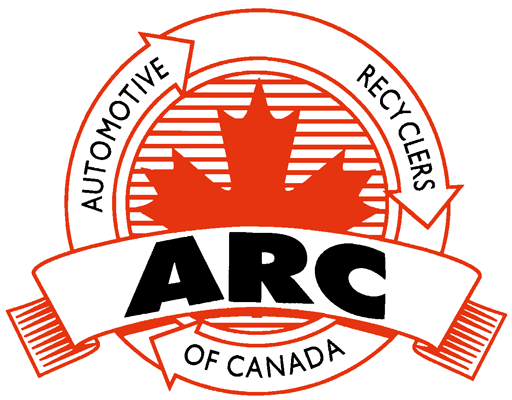The Canadian Auto Recyclers Environmental Code (CAREC) turned 10 this year and although there weren’t a lot of cakes cut or balloons launched, the industry continues to celebrate this program with every vehicle that is retired and decommissioned responsibly.nnMore and more auto recycling shops that are not members of the Automotive Recyclers of Canada (ARC) are requesting CAREC audits because they view that process as beneficial to their business and their efforts to stay ahead of the changing regulatory landscape. There also is the prestige associated with receiving a high score in a CAREC audit.nn“Auto recyclers are a competitive group and everyone wants the top score,” says Wally Dingman, president of Caughill Auto Wreckers in Belleville, Ont., and chairman of ARC. “Many [ARC] members have also commented that the structured approach to both compliance and best practices have really improved its business practices. A clean, organized business that prevents problems before they occur is a more profitable business.”nnCAREC began in 2009 as a National Code of Practice to support Environment Canada’s National Vehicle Scrappage Program (NVSP; a.k.a. Retire Your Ride), which was established two years prior. Environment Canada was visionary in its approach to reducing air pollutants emitted by pre-1995 vehicles, in that the program required that the hazardous materials (mercury switches, batteries, refrigerants, operating fluids, etc.) from these retired vehicles also were handled responsibly. Before 2009, the rules governing auto recycling tended to be more concerned with where auto recyclers were located rather than with proactive processes to ensure vehicles were decommissioned properly.nnA study was commissioned by Environment Canada to develop the standards, training, auditing and resources to ensure minimum compliance with a hodgepodge of rules and regulations across Canada, but, more importantly, to develop best practices so participants in the NVSP would be identified as leaders in the recycling industry. Auditors were trained, resources were developed and more than 350 auto recyclers in all parts of Canada were trained and audited to ensure they met the requirements of the National Code of Practice.nnIn 2012, responsibility for enforcing the code was transferred to ARC from Environment Canada and rebranded as CAREC. ARC also made compliance with CAREC a fundamental requirement to belong to one of the seven provincial associations that comprise ARC.nn“We believed so much in the power of CAREC,” says Dingman, “not only to help guide individual members on ways to improve their business, but also to demonstrate our leadership within the industry. Making CAREC mandatory was an important decision for ARC. But looking back, this put ARC and its members on a trajectory of leadership that has benefited [our NVSP] participants at every level. ARC, our provincial associations and individual members, [because we undertook] this voluntary initiative to formalize the industry, have been recognized as the leaders they are.”nnGovernments have taken notice. Ontario and P.E.I. are rewriting (or will do so, in the case of Nova Scotia) their laws governing auto recycling, and each is using CAREC as a guide.nn“CAREC showed both industry and government that common rules are required for anyone processing, end-of-life vehicles and that [compliance] can be achieved by any responsible business, no matter where they are located, their size or whether they are dismantling vehicles for their parts’ reuse or simply metal recovery,” says Greg Woodbeck, co-owner of Woodbeck Auto Parts in Stirling, Ont., and chairman of the Ontario Automotive Recyclers Association. “We continue to work with the Ministry of Environment to implement the new regulations that have definitely impacted the industry.”nnWhen ARC inherited CAREC from Environment Canada, the association increased its passing score to 75% from 70%. ARC also implemented an audit protocol that required members that scored less than 85% on their initial audit to undergo subsequent audits every two years; ARC members scoring 85% or better must undergo subsequent audits every three years. With standardized scoring, subsequent audits and pollution prevention recommendations and requirements built into CAREC, there has been a steady improvement in ARC members’ CAREC scores over time.nnCAREC’s standards, audit protocols and education resources are posted for downloading on one of ARC’s websites (www.carec.ca). Countries from around the world have looked to Canada’s recycling protocols when developing or enhancing their auto recycling industries.nnNot a bad legacy. And ARC and CARAC will continue to bring professionalism and direction to Canada’s auto recycling industry for years to come.nnCanadian Auto Recyclers e-zine July 2019
